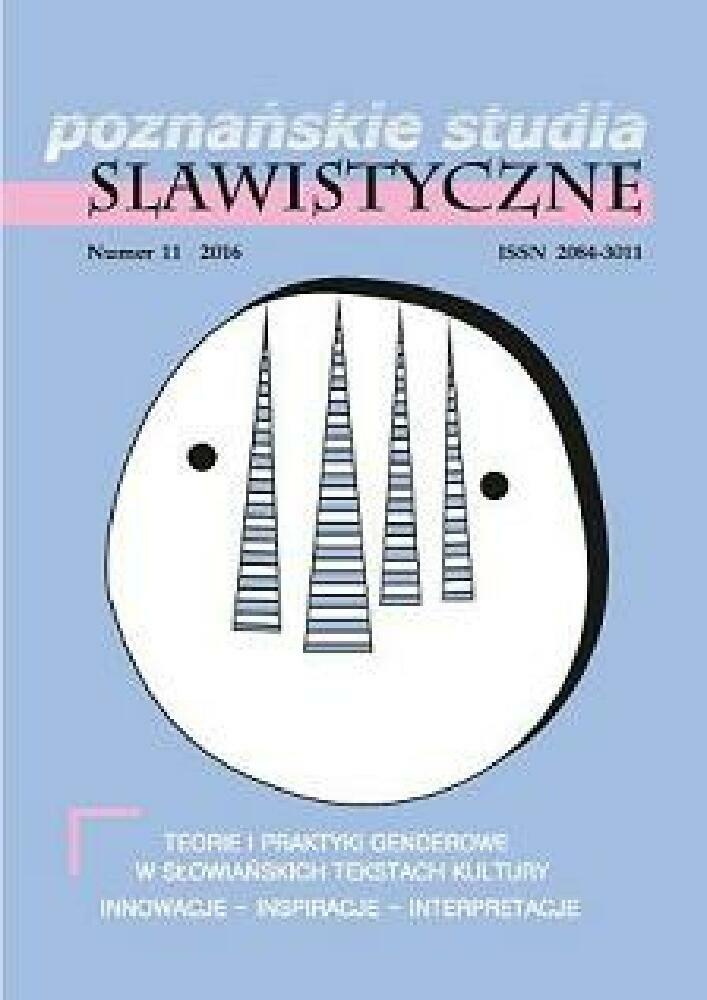Abstrakt
The article outlines the last 20 years of Croatian feminist theatrology and its relation to national and Western theoretical currents, as well as to specific historical contexts. Appearing for the first time in the nineties, with Lada Čale Feldman’s analysis of contemporary women playwrights, Croatian feminist theatrology has developed rapidly. In 2001 a first overview of the discipline was written by the same author, in which the position of Croatian theatrology in relation to the Western theoretical mainstream was defined in postcolonial and gender terms as a self-conscious Other with hidden subversive potential. While most of the feminist theatrological works in the nineties were characterised by their opposition to the monolithic definition of the nation by pointing out its non homogeneous nature (for example, in Dubravka Crnojević Carić’s analysis of historical plays in national theatres), in the noughties new topics are introduced: theatre and performance as bodily experience, performativity (Judith Butler’s theory critically revisited by Lada Čale Feldman), multiple identity of the actress in her interchange with the audience, and ethical responsibility and social role of the theatrical event (Nataša Govedić). These topics develop previous theoretical issues and the personal concerns of their authors, as well as being a response to current national theatrical productions and to historical and political contingencies marked by the collective disenchantment of the post-transition age and new risks of repatriarchalisation. The idea of active participation in society in order to change and improve it (in particular by using the power of the theatre in countering social violence, as in the work of Nataša Govedić), is strictly connected to the ancient question of tragic predestination and the inevitability of misfortune, which introduces into Croatian theatrology the issue of the tragic worldview in feminist criticism and epistemology.Bibliografia
Badurina N., 2014, Utvara kletve. O sublimnom i rodnim ulogama u hrvatskoj povijesnoj tragediji u 19. stoljeću, Zagreb.
Badurina N., 2015, On the Advantage of Tragedy for Feminism, u: A feminist critique of knowledge production, ur. S. Carotenuto, R. Jambrešić Kirin, S. Prlenda, Napulj, str. 111–125.
Biti V., 1997, Pojmovnik suvremene književne teorije, Zagreb. Case S. (ur.), 1990, Performing Feminisms: Feminist Critical Theory and Theatre, London–Baltimore.
Crnojević Carić D., 1998, Toplo okrilje međa, „Republika” br. 7–8, god. LIV, str. 136– –146.
Crnojević Carić D., 2008, Gluma i identitet – o glumi i melankoliji, Zagreb.
Crnojević Carić D., 2012, Melankolija i smijeh na hrvatskoj pozornici, Zagreb.
Čale Feldman L., 1996, Postoji li suvremeno hrvatsko dramsko žensko pismo?, „Republika” br. 3–4, str. 29–40.
Čale Feldman L., 2001a, Euridikini osvrti, Zagreb.
Čale Feldman L., 2001b, Korpusi, leševi i tijela, „Treća” br. 1–2, vol. III, str. 116–132.
Čale Feldman L., 2003, Medijacije Medeje, „Sarajevske sveske” br. 2, str. 95–112 (vidi i u: Čale Feldman L., 2005, Femina ludens, Zagreb, str. 185–202).
Čale Feldman L., 2012, „Nekrofilno odricanje” ili „žalovanje i melankolija”? Još o Ibsenovu „Rosmersholmu’ i Vojnovićevu ‘Sutonu”, u: eadem, U san nije vjerovati, Zagreb, str. 171–188.
Čale Feldman L., Tomljenović A., 2012, Uvod u feminističku književnu kritiku, Zagreb.
Dienstag J.F., 2008, Tragedy, Pessimism, Nietzsche, u: Rethinking Tragedy, ur. R. Felski, Baltimore, str. 104–123.
Govedić N., 2002, Izbor uloge, pomak granice. Književne, kazališne i filmske studije, Zagreb.
Govedić N., 2006, The trauma of apathy: two playwrights of post-Yugoslav nowhereland (Ivana Sajko and Biljana Srbljanović), „Revue des études slaves” br. 77 (1–2), str. 203–216.
Govedić N., 2007, Subjekt ili okrenutost prema tebi: filozofija dramativiteta, Zagreb.
Jambrešić Kirin R., 2001, Egzil i hrvatska ženska autobiografska književnost devedesetih, „Reč: časopis za književnost, kulturu i društvena pitanja” br. 7, vol. 61, str. 175–197.
Jukić T., 2011, Revolucija i melankolija: granice pamćenja hrvatske književnosti, Zagreb.
Keyssar H. (ur.), 1996, Feminist Theatre and Theory, New York.
Kralj I. (ur.), 2011, Žene i cirkus / Women and circus, Zagreb.
Maffesoli M., 2008, The Return of the Tragic in Postmodern Societies, u: Rethinking Tragedy, ur. R. Felski, Baltimore, str. 319–336.
Marjanić S., 2011a, Ženske/feminističke izvedbene umjetnosti u Hrvatskoj 1990–2010 – razvoj i kontekst: Žensko – feminističko – antifeminino, u: Ženski glasovi u izvedbenim umjetnostima zapadnog Balkana, ur. N. Nelević, Podgorica, str. 40–67.
Marjanić S., 2011b, Feminističko kazalište/performans: moć izvedbe otpora, „Treća” br. 2, vol. XIII, str. 71–88.
Marjanić S., 2014, Kronotop hrvatskoga performansa: od Travelera do danas, Zagreb.
Obad O., 2011, Balkan lights. O promjenama u predodžbama o Zapadu i Balkanu u Hrvatskoj, u: Horror porno ennui. Kulturne prakse postsocijalizma, ur. I. Prica, T. Škokić, Zagreb, str. 9–29.
Petlevski S., 2001, Kazalište suigre, Zagreb.
Sands K.M., 2008, Tragedy, Theology, and Feminism in the Time After Time, u: Rethinking Tragedy, ur. R. Felski, Baltimore, str. 82–103.
Senker B., 2013, Uvod u suvremenu teatrologiju II, Zagreb. Steiner G., 1979, Smrt tragedije, Zagreb.
Licencja
Prawa autorskie (c) 2016 Natka Badurina

Utwór dostępny jest na licencji Creative Commons Uznanie autorstwa – Bez utworów zależnych 4.0 Międzynarodowe.
